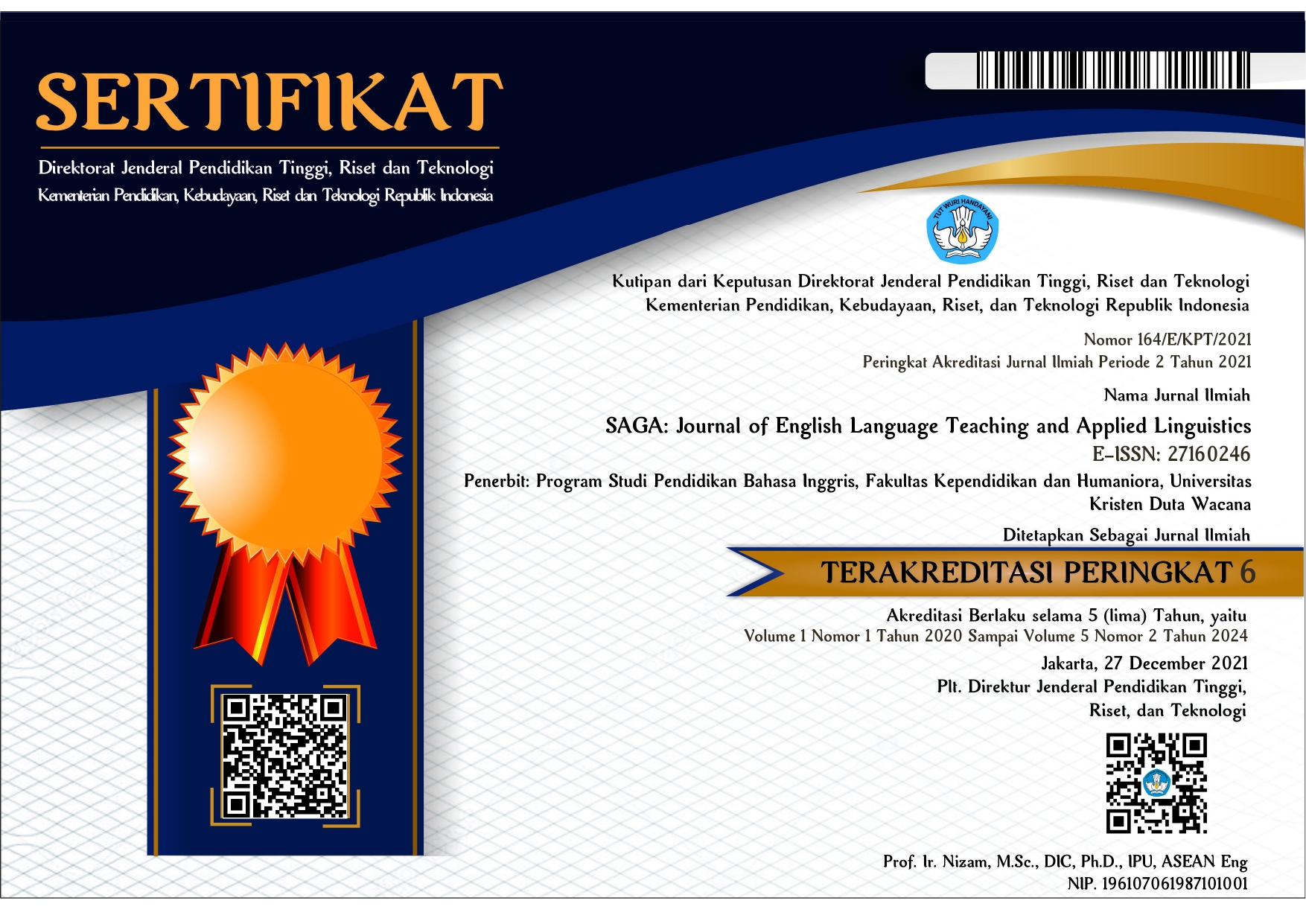ISOLATED AND INTEGRATED GRAMMAR TEACHING IN TERTIARY EFL CONTEXT: INDONESIAN TEACHERS’ BELIEFS
DOI:
https://doi.org/10.21460/saga.2020.11.9Keywords:
Focus on Form/Forms, teachers' beliefs, Tertiary EFL contextAbstract
While there are a lot of debates surrounding isolated and integrated grammar teaching, there is still limited research on their uses in EFL settings with larger class sizes and different learning environments. To fill in this gap, this case study investigates teachers’ beliefs toward isolated grammar teaching (Focus on Forms/FoFs) and integrated grammar teaching (largely a version of Focus on Form/FonF) in the context of EFL tertiary language study in Indonesia. The data were obtained by conducting semi-structured interviews with 10 Indonesian teachers of a private university’s English language program. In general, the teachers tended to value one of the approaches for different aspects, but there was less consensus on their effectiveness to promote students’ ability to apply grammar in context. In spite of this, most considered the approaches to complement each other. Nevertheless, over half of the participants indicated that isolated grammar teaching should assume a primary role in their context for practical reasons. Drawing on mostly teachers' experience in grammar teaching, this small-scale research offers more crucial insights into how isolated and integrated grammar teaching like FonFs and FonF are viewed at a more practical level amidst controversies on how to best teach grammar.









